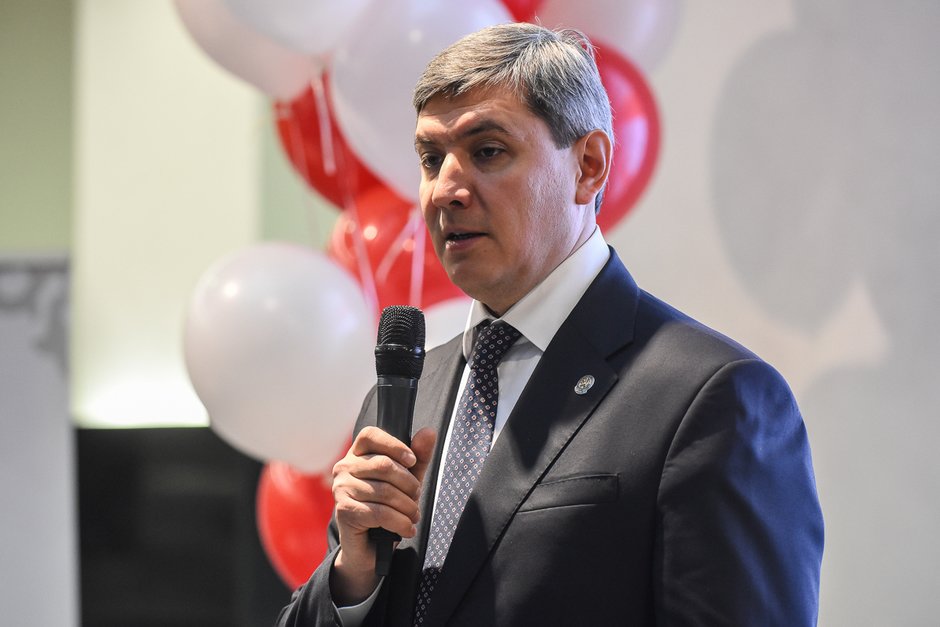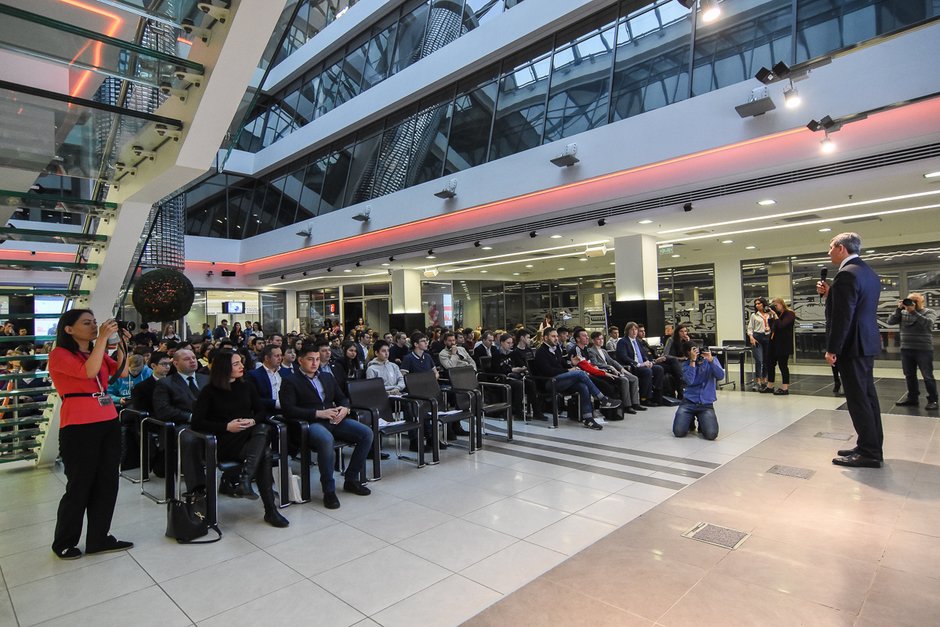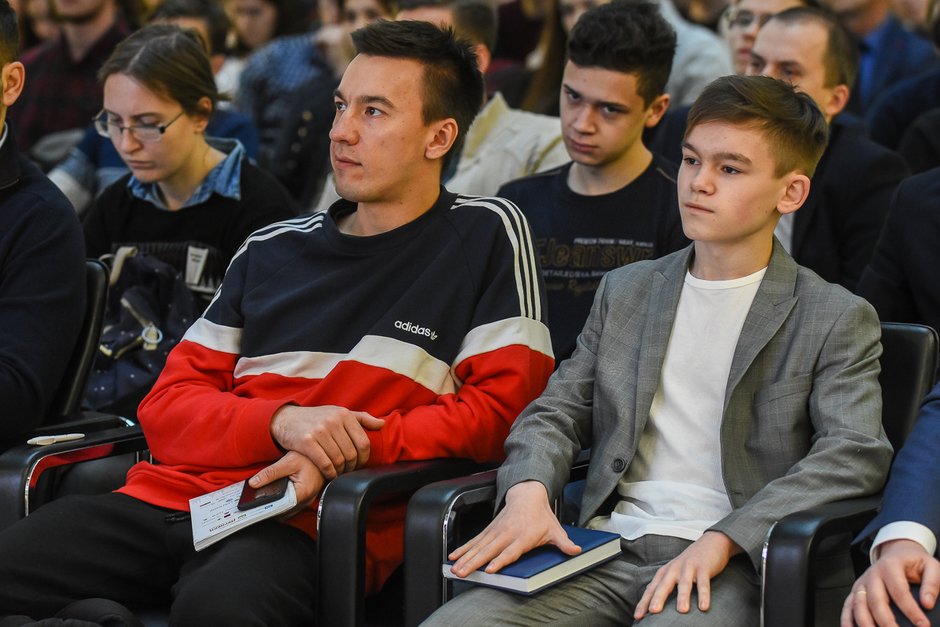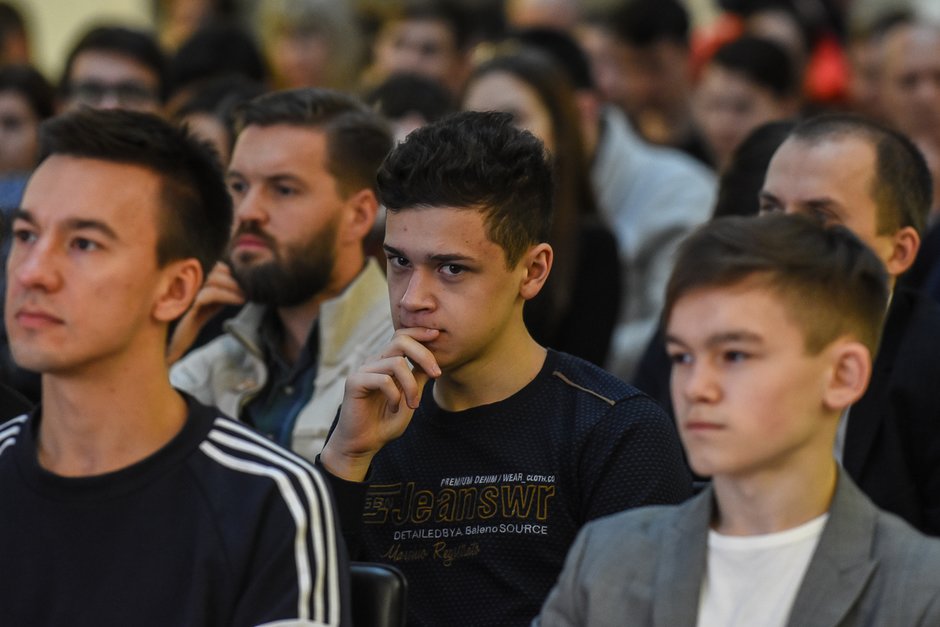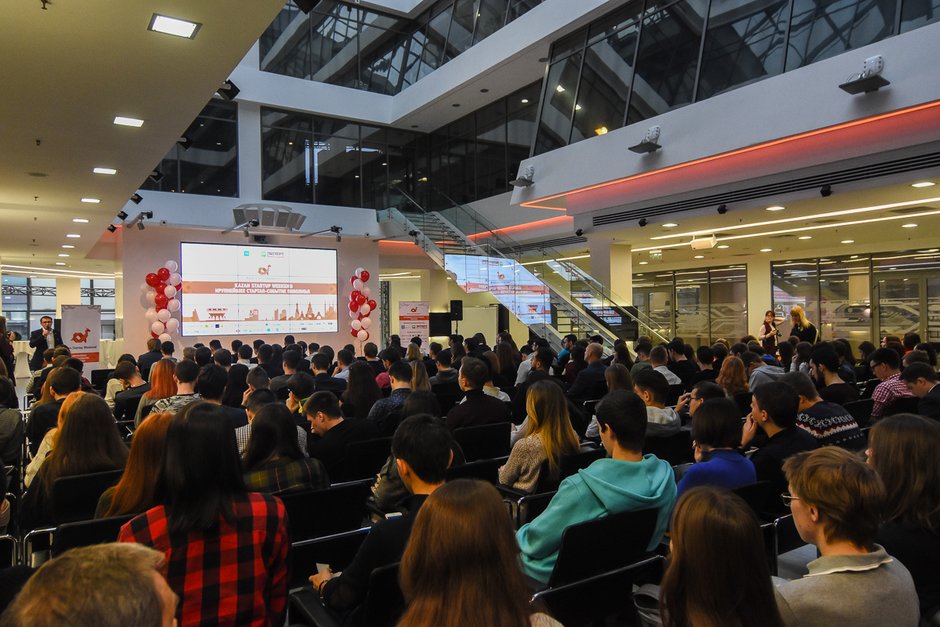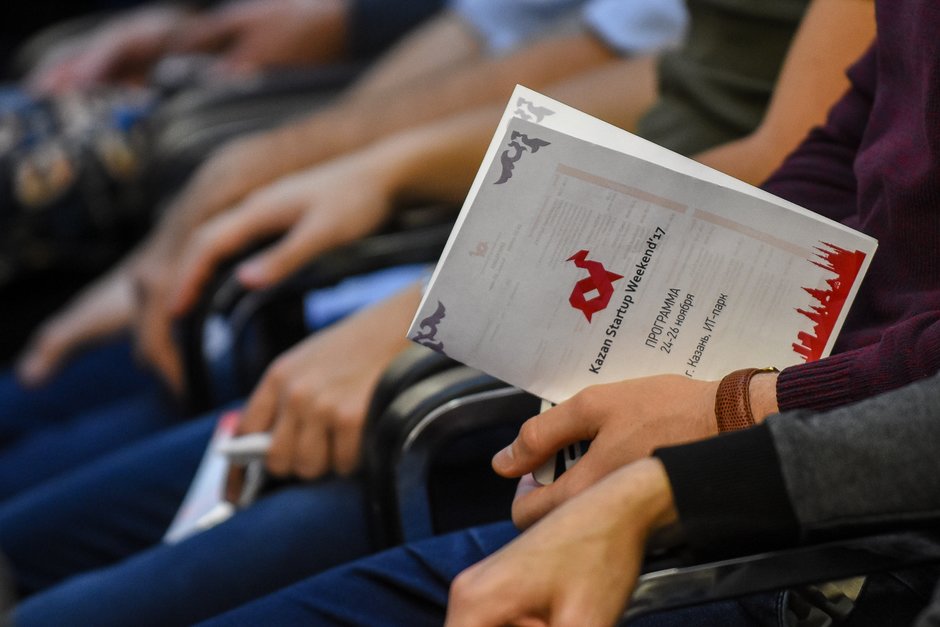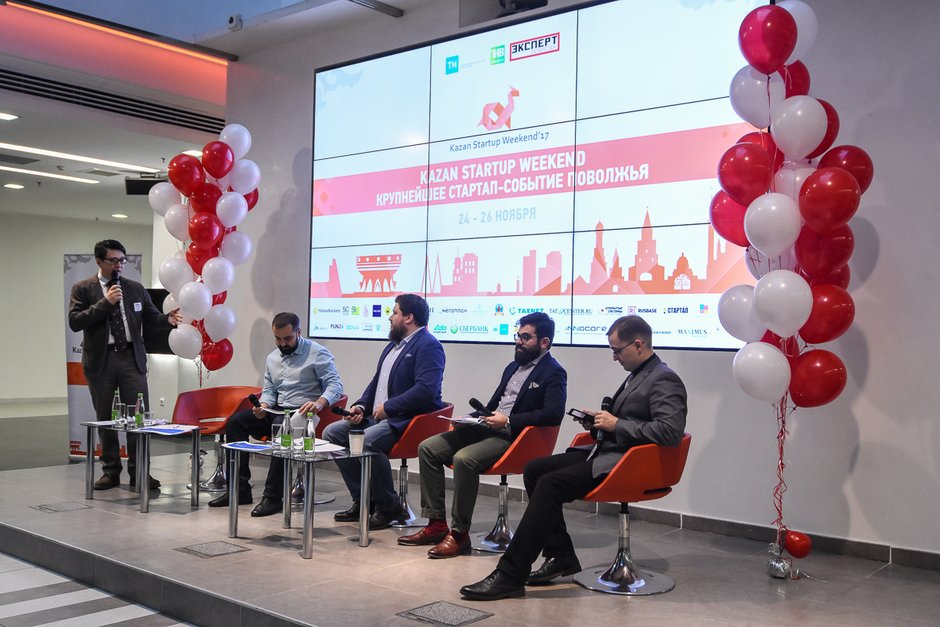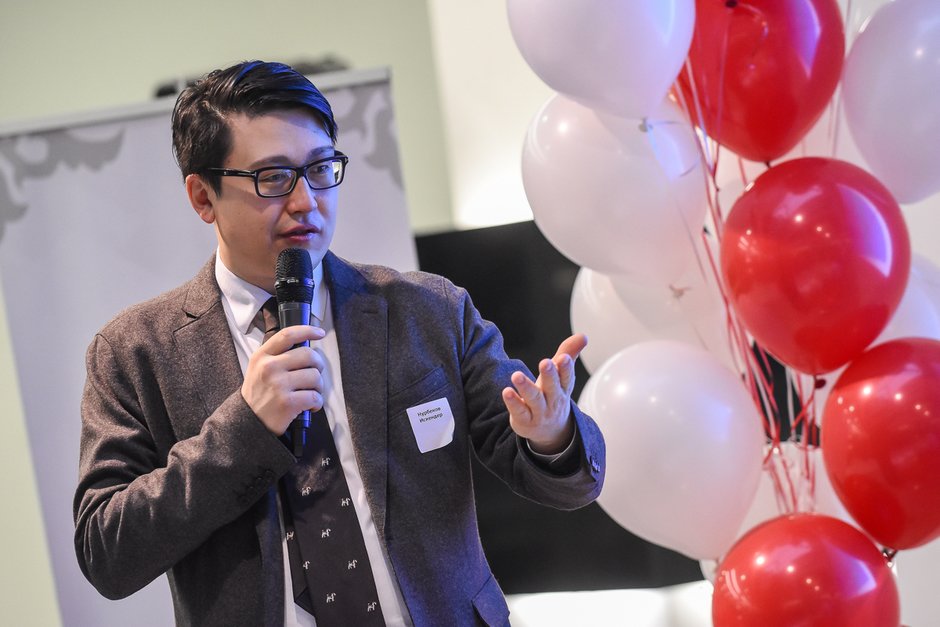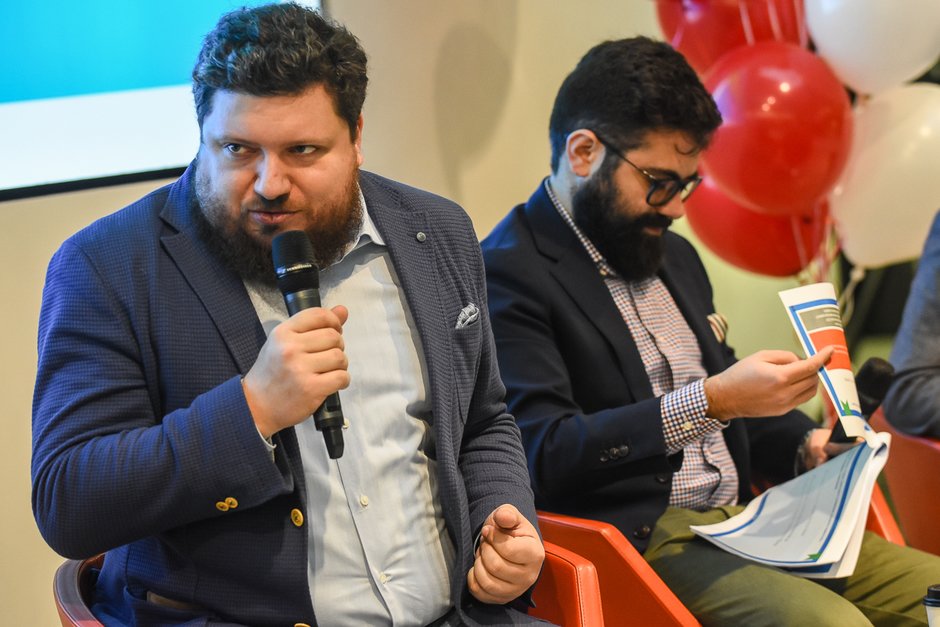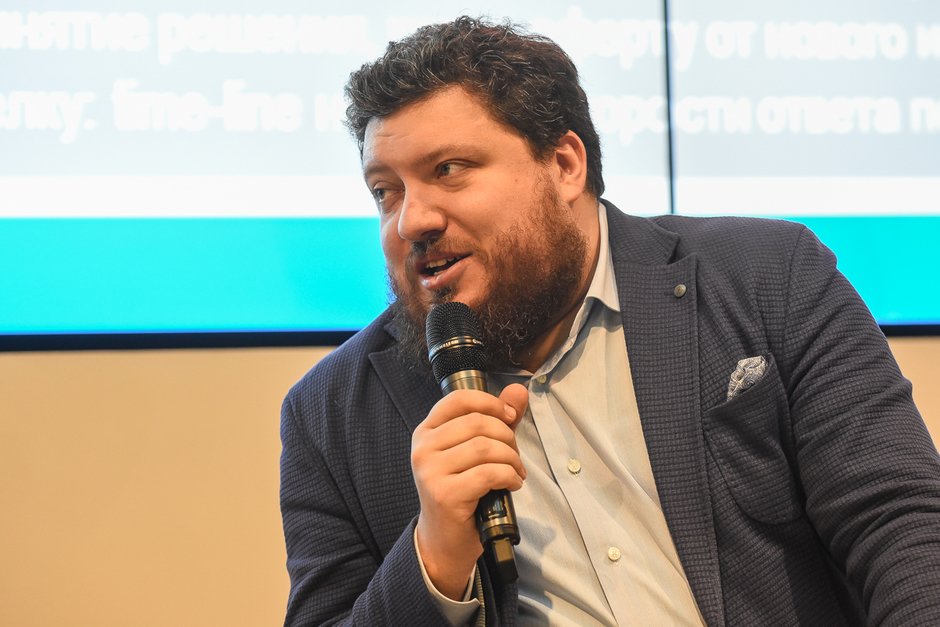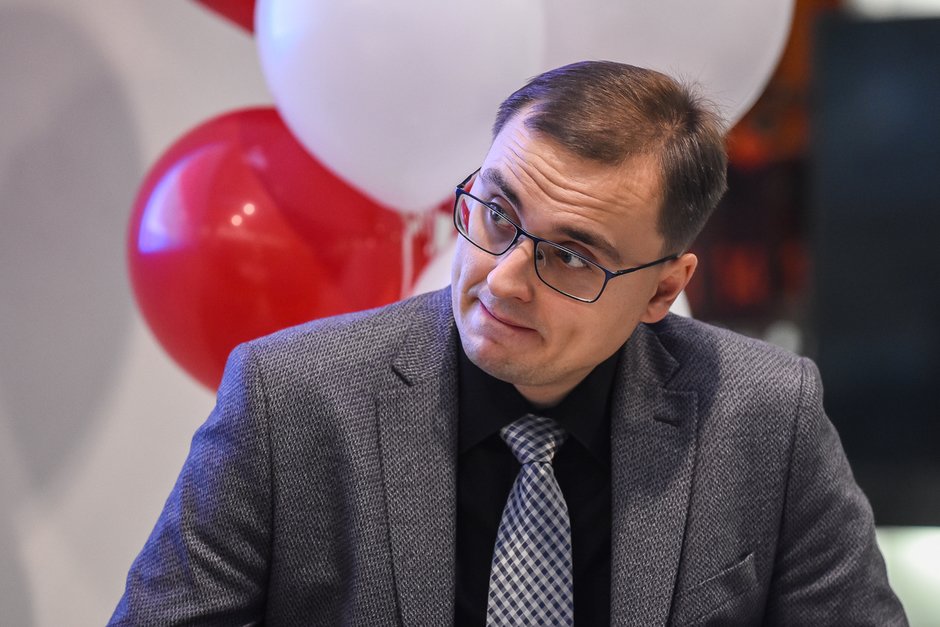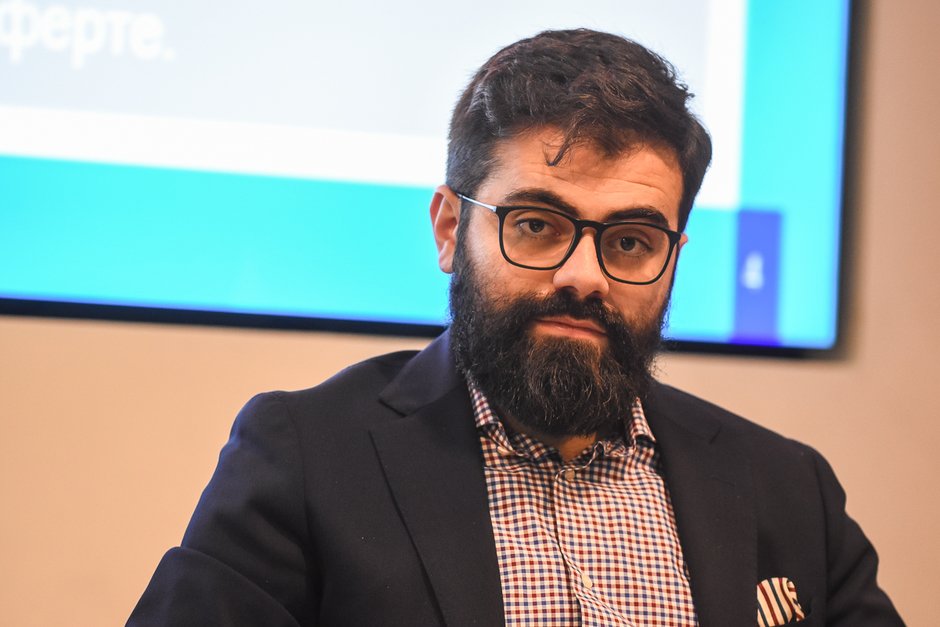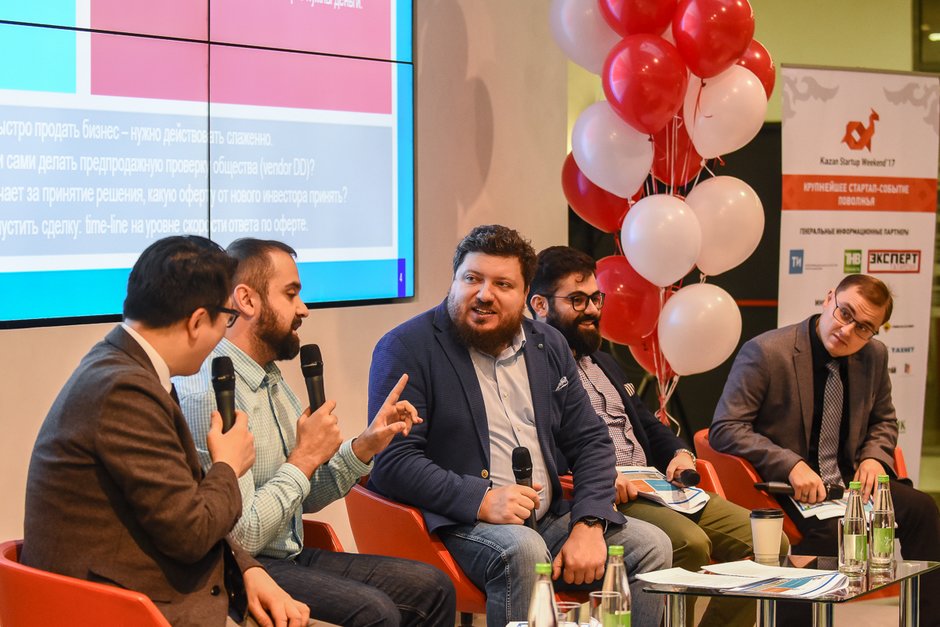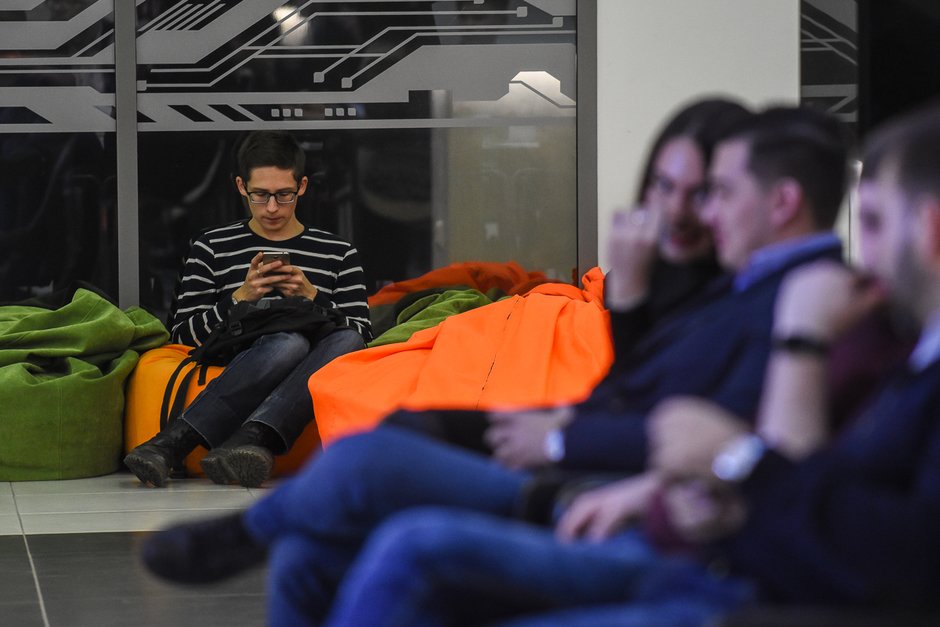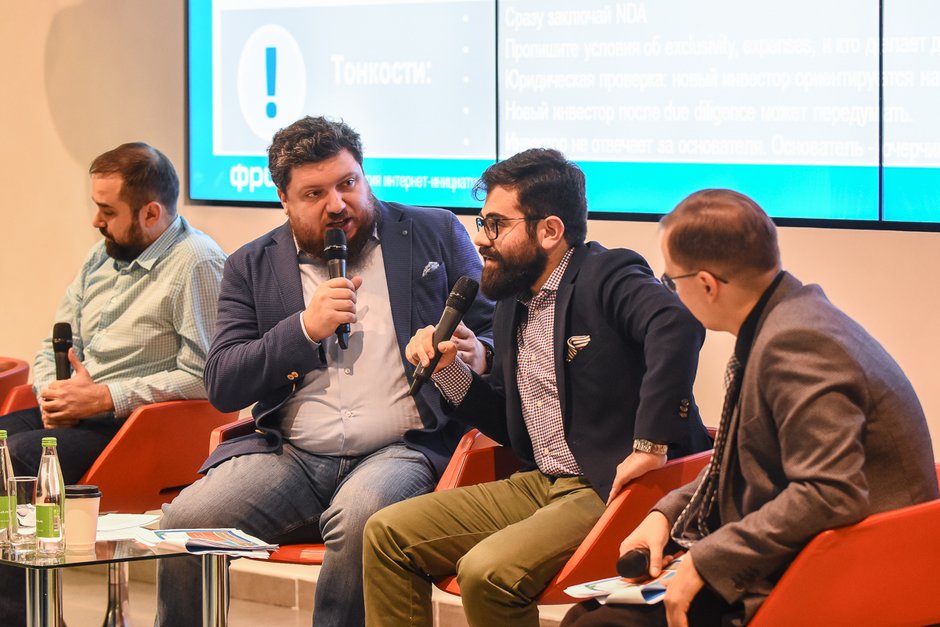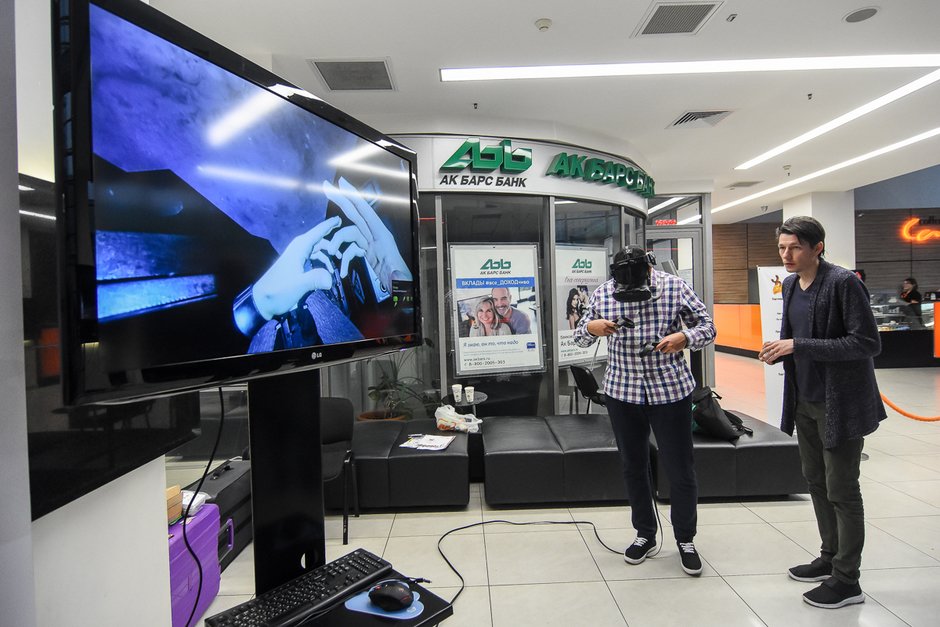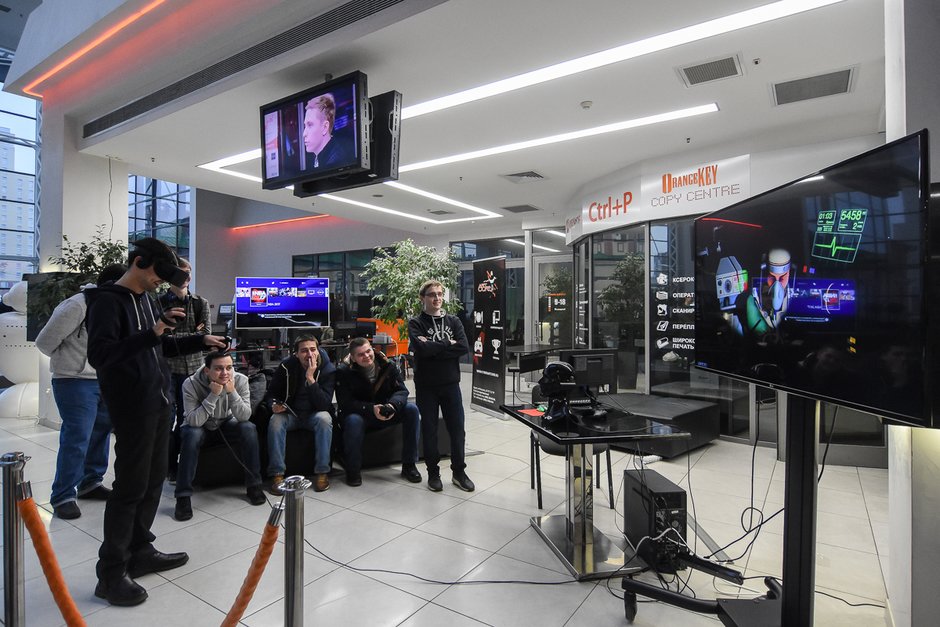''180 deals on venture market — it is a very small amount''
Kazan hosts Kazan Startup Weekend, the main startup event in the Volga region
Kazan Startup Weekend, which is positioned as the main startup event in the Volga region in Russia, was held in IT Park from 24 to 26 November in the technopark in the sphere of high technologies IT Park. Indeed, IT Park gathered nearly a thousand people not only from Kazan, but also from different cities of Tatarstan, the Volga Federal District and Moscow.
Best weekends for IT entrepreneurs
The purpose of such events is to gather established and aspiring IT entrepreneurs. To acquaint them with experts who can give valuable advice, potential investors and customers. To make more popular the idea of innovation among young people. All these groups with their own aims were introduced at Kazan Startup Weekend. The official part was opened by the deputy prime minister and minister of informatization and communications, Roman Shaikhutdinov. The main part included master classes, round table discussions, individual consultations and start-up battles.
''Yesterday I delivered a speech to students at a venture accelerator and by personal example tried to inspire them, explaining that they should not be afraid to go in IT business,'' Azat Khasanshin, the 16-year-old creator of the project Kak Pravilno [how it is correct] from Almetyevsk, told Realnoe Vremya. The project helps high school students to get prepared for exams on the Russian language. A year ago he received the first investment.
''I really want people to hear me and understand. The media should write not bare facts but cool and bright stories about themselves. And to promote themselves like movie stars,'' Victoria Kravchenko, UGC-editor of the popular business publications Rusbase, said to our readers.
You don't have to have a programming skill to establish a successful startup
Crowded hall of Kazan IT Park with initiative youth, the excitement around startups in the media can't hide the fact that small IT entrepreneurs occupy a very modest place in the economy. According to well-known venture businessman Alexander Rumyantsev, for the year 2016, on Russian venture market it was concluded a total of 180 deals, and it is a very small amount. In total, in Russia there are 20,000 IT entrepreneurs, and Rumyantsev has set a goal to himself to increase that number 10 times by 2020.
''The venture accelerator is my only social project in which I invested my money and don't expect to make money on it. I expect to sow the basics of entrepreneurship among young people. During these two days on our platform there have already registered almost 200 young people,'' said Rumyantsev to Realnoe Vremya. The entrepreneur believes that creating a successful startup doesn't require the skills of programming because now there are many designers of websites and applications. The main thing is a business idea and the ability to bring it to a result. By the way, it is Rumyantsev who invetsed in the startup of Azat Khasanshin.
''The main thing for startups in the sphere of financial technology is that fintech should end with revenue that will be received by the project, and for that it should close the task of the user well,'' told Nailya Zamashkina, operating director of the interbank accelerator Fintekh Lab. ''There are small teams of two or three people for whom even agile is not applicable because they are very few. But they do magical things. As examples of successful startups in the field of fintech I can cite a patented solution for voice identification with 97% accuracy, a project for scoring when a bank can instantly make the decision on microcredit online.''
''You shouldn't focus on what most people say. The story with bitcoins is great, but when it is inflated like a bubble, it's bad. To succeed, you must have a proven working technology and you must have patience to negotiate with major structures,'' Oleg Barannik, marketing director at Startbase, mentor of Skolkovo and partner of Kazan IT Park, who moderated the round table discussion 'The role of technoparks and business incubators in the development of corporate innovation', commented to Realnoe Vremya on the formula for success.
Startups getting ready to run the sprint, and corporations running the marathon
Many startups, investing in the project all the forces, dream to sell their services to large corporations. Some of them succeed in it. What happens to them next was discussed by venture market experts at a special round table discussion at the press center of IT Park. How for a young entrepreneur to distinguish between the DM (decision maker) from the RDM (real decision maker), why business incubators in Russia actually substitute higher education institutions and how Russian universities will try to change the situation — the agenda known to everyone who has interacted with IT sphere.
The startup founder often sees his direct customer twice: at the beginning and at the end of the project. The customer says the right words and he is interested in everything innovative. When it comes down to the work, IT entrepreneur works with line manager who holds the following position: ''If there is a protocol, then I will be punished, and if it goes well, I won't be.'' The paces of work do not coincide. If startups get ready to run the sprint, the corporations run the marathon. A task that in a small team is solved in an hour can take months in a large company to be agreed. It often happens that corporations claiming the high-tech accelerator goals choose not the most advanced and technologically advanced people but those who here and now is ready to perform a trivial application task. Such problematic nodes of startup interaction with big business was outlined by the moderator of the round table discussion, Oleg Barannik.
Expert in financial technology Nailya Zamashkina shared experience of collaboration of IT entrepreneurs with banks on the sites of the accelerator Fintech Lab. Large business should understand that they can't force a startup to work on a top-down technical specification. But IT teams should also understand that cooperation with corporations is not for everyone, but only for finished projects. The startups at the level of ideas, which started only 3 months ago or working in beta version, won't be able to achieve success there. Specially authorized employee – a communicator who knows ways to all sources: lawyers, financiers, security and so on – should accompany the startup through the corridors of the corporation.
Damir Galiev, the head of project office of innovation development of at Ak Bars Bank, also outlined the key mistakes in dealing with large customers. You should not knock when there is no culture of changes. The corporation and its customers — it is customers of startups, who are subjects to all rules of client-centeredness. One shouldn't offer vitamins instead of pills for a headache.
''Minnikhanov visits right foreign countries''
If the project fails to be sold successfully on Russian market, international market is always open for startups. Director of the fund AD.RU Oleg Dronov tried to convey this idea to the audience. As he told to Realnoe Vremya, the services that satisfy basic needs — food, clothing, delivery — are particularly interesting on the market of developing countries. AD.RU relies on the countries of South-East Asia, Latin America, Africa and some countries of Europe. A good example is the work in Vietnam for a simple reason — due to historical circumstances among the Vietnamese people speaking in Russian are much more than among residents of neighbouring countries. ''People often ask, ''How will we translate, how will we provide technical support?'' You guys have already dealt with programming, it is possible to handle with it either, and we will help. In the end, the translation into Vietnamese costs only a thousand rubles,'' Dronov concluded.
The prospects for international development were supported the participants of the round table discussion. ''It fits perfectly into the realities of Tatarstan. Rustam Minnikhanov is one of the most leaders of the regions frequently going on foreign trips. He goes not to America, England, France. He goes in the right countries. This is BRICS countries and close to them by level states. These countries need solutions, but often they are not willing to buy SAP and Oracle, but in Tatarstan there are a lot of solutions that can be integrated into our IT exports,'' said moderator of the round table discussion Oleg Barannik.
